Events
| Name | organizer | Where |
|---|---|---|
| MBCC “Doing Business with Mongolia seminar and Christmas Receptiom” Dec 10. 2025 London UK | MBCCI | London UK Goodman LLC |
NEWS

Mongolia’s geological potential and its role in the global minerals supply chain have long been recognised www.mininginsight.mn
Every year in early March, the PDAC Convention of the Prospectors & Developers Association of Canada (PDAC) is held in Toronto, Canada. Mining Insight Magazine is pleased to announce that it is serving as an official media partner of the convention for the fourth time. Ahead of the event, we present to our readers an interview conducted by Mining Insight journalist E. Odjargal with Karen Rees, President of the PDAC. By way of brief introduction, Karen Rees is a professional geologist with 37 years of experience in Canada’s mineral exploration sector. In addition to serving as President of PDAC, she is also a board member of three junior exploration projects located in Ontario, Quebec, and Manitoba.
With more than 90 years of history, PDAC has played a significant role internationally. How would you describe its long-term impact?
We’re proud to bring the global mineral exploration and mining community together in Toronto each year for the PDAC Convention. Over time, its impact has come from creating a trusted place for people across the sector to have direct, practical conversations about the issues that shape projects, investment decisions and policy. Those conversations matter. The connections made at PDAC influence where capital flows, how projects move forward and how jurisdictions position themselves in an increasingly competitive global landscape.
Under your leadership, what strategic directions and priorities will PDAC pursue in the coming years?
The focus is on keeping Canada competitive as a place to explore, invest and advance mineral projects responsibly. Maintaining investment momentum depends on policy certainty, particularly for mineral exploration, where stable and predictable frameworks are essential. A top priority is securing long-term investment certainty. That includes improving access to capital, reducing regulatory duplication and delays, streamlining permitting processes, and continuing to invest in public geoscience and enabling infrastructure. Responsible exploration is central to this work. Practical, industry-led tools such as Driving Responsible Exploration help companies manage risk, strengthen environmental, social, and governance frameworks, and build respectful, long-term relationships with Indigenous communities. Talent is another key part of the picture. Attracting the next generation of workers and ensuring students and early career professionals have clear pathways into the industry, opportunities to connect with employers and the skills needed to build lasting careers is essential to the sector’s future.
The 2026 Convention marks the 94th edition of PDAC. What will distinguish PDAC 2026?
PDAC 2026 will build on strong momentum following a year that welcomed more than 27,000 participants from around the world. It will feature the largest trade show in the event’s history. For the first time, Trade Show North will span the entire North Building, bringing the total to more than 1,300 exhibitors. PDAC 2026 will also feature a wide-ranging program, with senior industry leaders and policymakers focused on the challenges and opportunities that are top of mind right now, including investment, supply chains and policy certainty. And as always, the convention is really about the connections. The conversations that start here often carry well beyond the four days in Toronto.
How has PDAC integrated critical minerals and supply-chain resilience into its program?
Critical minerals and supply-chain resilience are woven throughout PDAC 2026 programming because of their growing importance to electrification, energy systems, infrastructure and advanced manufacturing. Rather than being confined to a single stream, these themes appear across multiple program areas, reflecting how central they are to exploration, investment and development decisions. To name just a few examples, the Technical Program includes sessions such as Hiding in Plain Sight: Critical Minerals Recovery from Base Metals, which looks at how existing deposits and processes can contribute to future supply. In the Capital Markets Program, Metal Supply Security: What Would It Take to Reduce Geopolitical Risk? examines the investment and policy considerations shaping global mineral supply chains. The Short Courses Program also addresses these issues through sessions like Geology of Deep and Shallow Porphyry Copper Deposits and Implications for Exploration, highlighting the geological fundamentals that underpin long-term supply.
Have you observed growing engagement from national governments at PDAC?
Yes. Engagement from national and regional governments at PDAC has grown steadily in recent years, reflecting the strategic importance of minerals to economic growth, energy security and industrial policy. PDAC is the most important meeting place on the industry calendar, and governments recognize the value of engaging here as policies, supply chains and investment priorities are actively being shaped.
How do you assess Mongolia’s potential to attract mineral investment?
Mongolia has long been recognized for its geological potential and its position in global mineral supply chains. Its continued presence at PDAC, including initiatives such as Mongolia Day, reflects a clear commitment to engaging international investors and partners. PDAC provides a valuable opportunity to showcase those strengths, share policy priorities and meet directly with decision-makers. Over time, those conversations help build relationships and reinforce investor confidence, supporting Mongolia’s efforts to position itself as a competitive destination for exploration and development.
How would you characterize the current global investment climate for mineral exploration?
There is more momentum than a year ago, supported by stronger commodity prices and increased attention on minerals needed for electrification, infrastructure and economic growth. At the same time, investors remain focused on competitiveness, regulatory timelines and policy certainty. Exploration companies still face real challenges, including access to capital and permitting complexity. That’s why predictable regulatory frameworks and supportive investment environments matter so much. PDAC provides a place to have these conversations openly and to reinforce what is needed to support investment over the longer term.
What recent federal initiatives are aimed at accelerating critical minerals exploration and strengthening supply chains in Canada?
Federal Budget 2025 included several measures aimed at supporting critical minerals exploration and development. One of the most significant is the commitment to establish a C$2 billion Critical Minerals Sovereign Fund to make strategic investments in projects and companies, helping bridge financing gaps and advance priority supply-chain assets. The budget also expands the Critical Mineral Exploration Tax Credit (CMETC) by broadening the list of eligible minerals to include additional elements essential for defence, semiconductors, energy and clean technologies. Together, these measures are intended to mobilize private capital into early-stage exploration and reinforce Canada’s role in securing critical mineral supply chains.
How does Canada channel mining revenues into public and community benefits?
In Canada, mineral development contributes to public and community benefits through employment, taxation, infrastructure investment and long-term partnerships with Indigenous and local communities. Mining revenues support public services, while projects themselves often create lasting economic opportunities at the regional level. When projects are developed responsibly and in partnership with stakeholders, those benefits can extend well beyond production and support stronger, more resilient communities over time.
Mining Insight Magazine, 2026 №01 (050)
...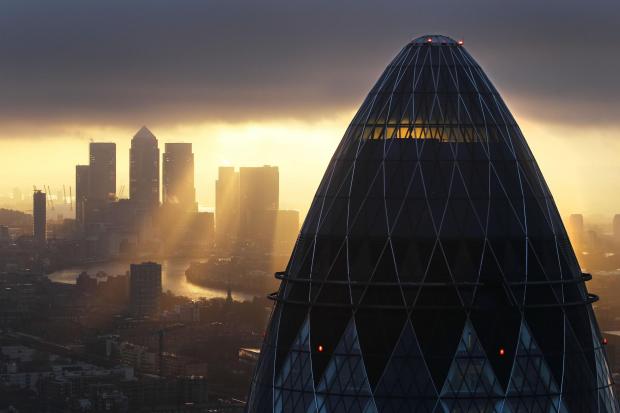
"From Strategy to Capital” Discussed in London www.mininginsight.mn
“MiningWeek & MinePro 2026” was successfully held in London on February 24, 2026, in cooperation with the Ministry of Industry and Mineral Resources. The event aimed to enhance foreign investment in Mongolia’s mining sector and strengthen the linkage between strategy and capital. In his opening remarks, Minister of Industry and Mineral Resources G. Damdinnyam highlighted Mongolia’s mining policy framework, legal and regulatory environment, ongoing investment climate reforms, and future strategic directions. He also emphasized the government’s commitment to supporting sustainable development, transparency, international standards, and long-term investment in the mining sector.
The event brought together a distinguished group of participants, including Fiona Blyth, Ambassador of the United Kingdom to Mongolia, Erdenetuya Ganbold, CEO of MNMA, representatives of enterprises, UK-based financial institutions, international financial organizations, institutional investors, capital market professionals, and mining sector stakeholders. In total, more than 80 participants attended and exchanged views.
A panel discussion under the theme “From Strategy to Capital” was held, accompanied by project presentations, market discussions, and B2B meetings with investors.
...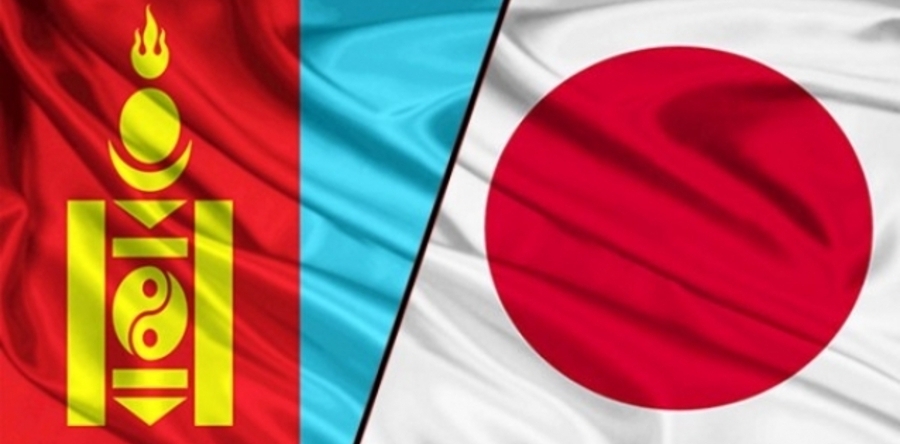
Export Expansion Highlighted at Japan Investment Day www.montsame.mn
“Japan Investment Day” was organized at the Investor Protection Center under the Ministry of Economy and Development.
Vice Minister of Economy and Development Davaasuren Sodnomdarjaa highlighted, “The Japan Investment Day event is the beginning of future effective collaborations to come and will expand opportunities to enrich the Mongolia-Japan Special Strategic Partnership with economic content.
Participants emphasized the importance of introducing Japan’s advanced technology, quality standards, and management practices to accelerate renewable energy development and the energy transition, foster value-added production in the critical minerals and agricultural sectors, and ensure infrastructural sustainability. They also noted that the Government of Mongolia places special importance on concluding trade agreements to expand foreign trade opportunities and diversify export markets.
Within the framework of the “Special Strategic Partnership for Peace and Prosperity,” Mongolia and Japan continue to broaden their cooperation, with economic relations and investment serving as key pillars of the partnership. The Government is focusing on creating a stable, transparent, and predictable environment for investors and is currently drafting amendments to the Law on Economic Freedom, proposed revisions to the Law on Investment, and a revised version of the Law on Permits.
In his remarks, Japanese Ambassador to Mongolia, Igawahara Masaru, expressed commitment to close cooperation to foster efficient collaboration and a sustainable legal environment as a bridge between Mongolian and Japanese entrepreneurs.
The Japanese side emphasized the need to ensure a stable and predictable tax environment, improve tax policies and broader regulatory frameworks applicable to foreign investors, and clarify investment incentive mechanisms. They also proposed deepening cooperation in the mining sector, holding regular B2B meetings in the wool and cashmere industry, and developing more coordinated mechanisms for equipment financing and export insurance. In addition, the Japanese side raised concerns regarding the lengthy preparatory phases, stringent requirements, and qualification criteria associated with participation in large-scale infrastructure projects, noting that greater alignment and coordination are needed to enhance cooperation.
Japan accounts for 4.1 percent of Mongolia’s total foreign trade turnover, including 0.1 percent of exports and 9.6 percent of imports. In the first half of last year, Japan invested USD 1.7 billion in direct investment, representing 3.5 percent of total foreign investment.
“Japan Investment Day” aims to elevate bilateral economic cooperation to a new level, strengthen mutual understanding and trust, and provide momentum for advancing concrete projects.
...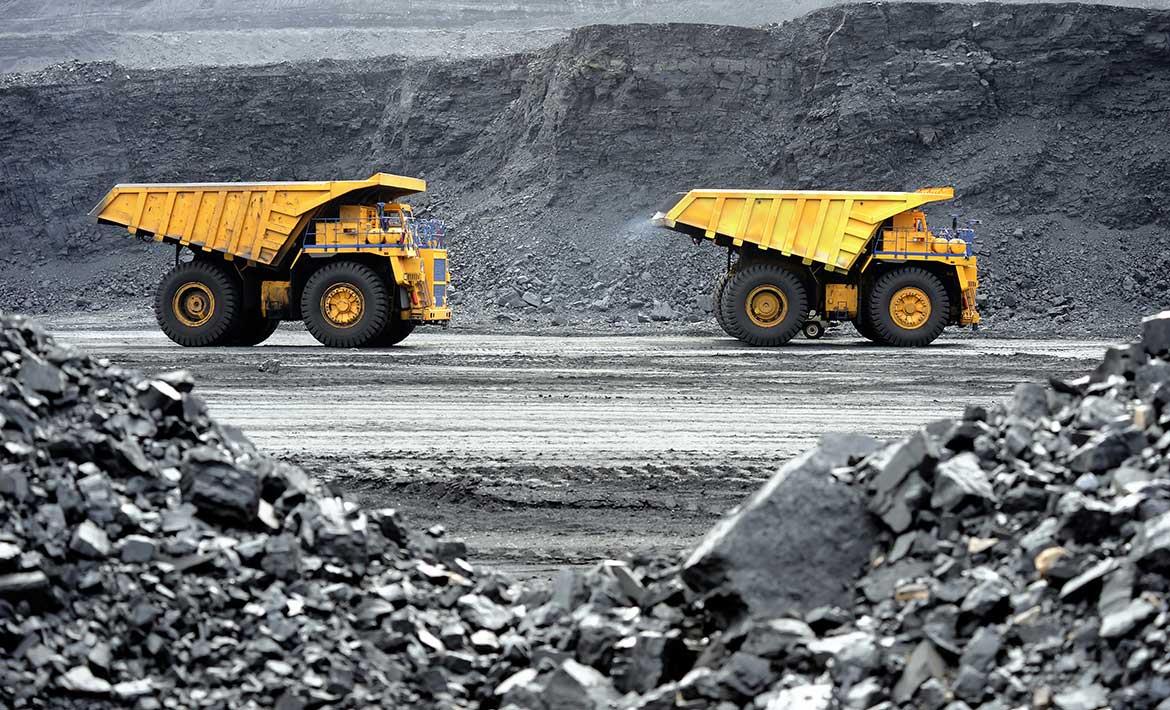
Erdenes Tavantolgoi to Distribute MNT 786.6 Billion in Dividends www.montsame.mn
Executives of Erdenes Tavantolgoi JSC presented the company’s 2025 operational report, its 2026 business plan, and expected performance indicators to journalists.
Last year, the company mined 30.2 million tonnes of coal, of which 27.6 million tonnes were sold, generating revenue of USD 1.7 billion. It contributed MNT 1.6 trillion in taxes to the State Budget of Mongolia.
Despite a downturn in the coal market and falling prices in 2025, the company reported a net profit of MNT 1.1 trillion. It also contributed to increasing Mongolia’s foreign exchange reserves and decided to distribute MNT 786.6 billion in dividends to its shareholders.
In addition, value-added projects — including a coal beneficiation plant, the Tavantolgoi coal loading logistics center, the Zagiin Water Pipeline, and a coal transport conveyor system — have been commissioned. These projects are expected to enhance resource utilization and create conditions for long-term, efficient, and sustainable operations.
For this year, the company plans to mine 35 million tonnes of coal and sell 32.9 million tonnes, with projected revenue of MNT 7.9 trillion, officials noted.
...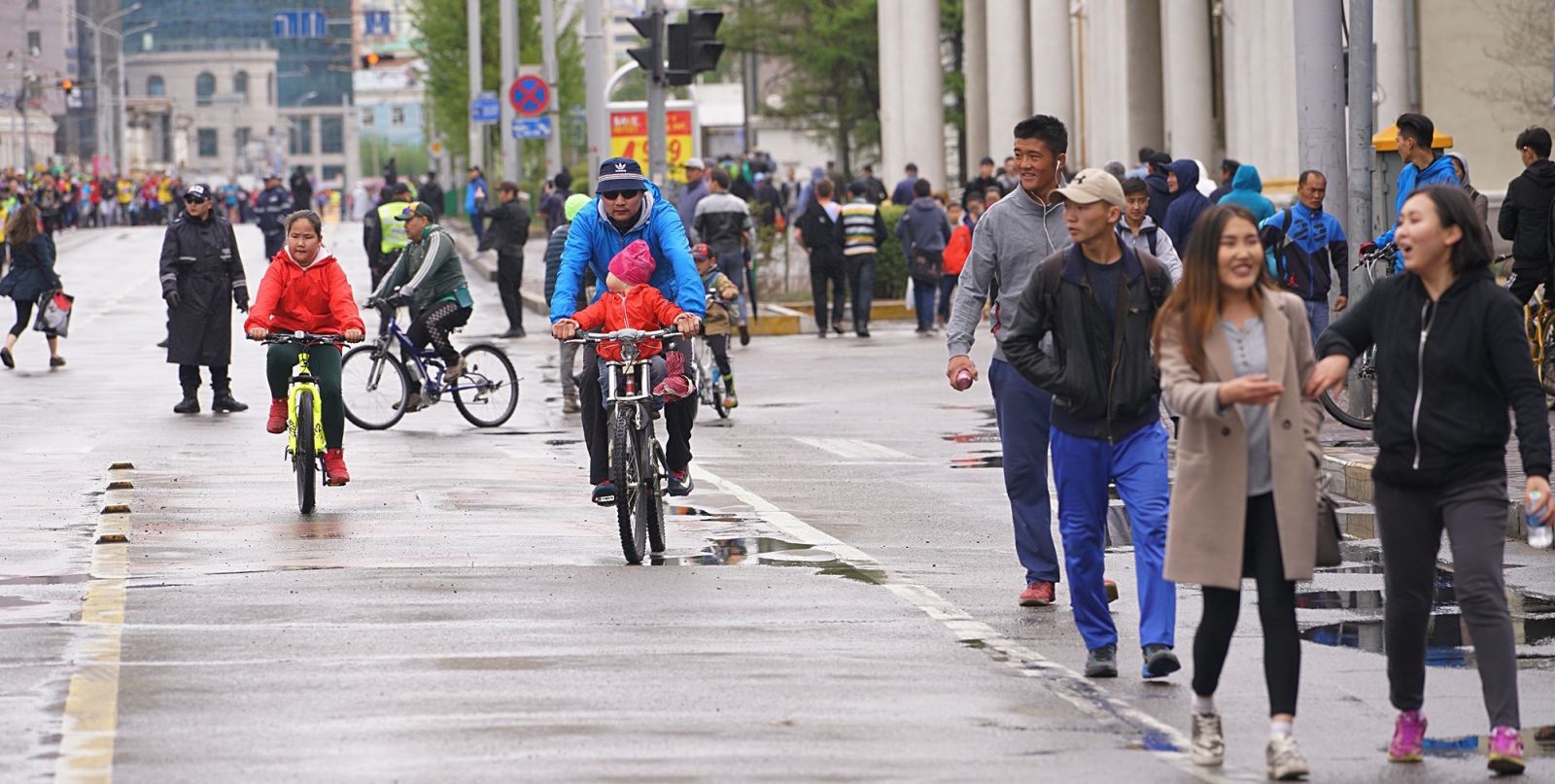
New Payment and Funding Regulations to Boost Family and Soum Health Centers www.montsame.mn
The National Council for Health Insurance convened on February 25 and unanimously approved Resolution No. 03 on “Revising Payment Rates, Payment Methods, and Procedures” at its final stage of discussion.
Under Resolution No. 03, which defines policy direction and financing for primary health care services, a total of MNT 133 billion in additional funding has been allocated — MNT 56 billion to family health centers and MNT 77 billion to soum health centers — marking a landmark decision.
The key reforms introduced by the resolution include establishing a gatekeeping system, strengthening the management of chronic diseases, placing special emphasis on life expectancy — particularly men’s health — improving access to services, enhancing human resource policy, increasing the per capita base tariff, and integrating the incentive system.
The resolution aims to ensure more effective implementation of the health insurance system by introducing performance-based evaluation and incentives for primary-level family, soum, and village health institutions based on citizen registration, monitoring, and service delivery, while improving access to quality health services for the public.
...
Government Orders Uninterrupted Goal Transportation Through Gashuunsukhait, Khangi Border Crossings www.montsame.mn
At its regular session on February 25, the Cabinet approved a resolution on some measures to improve transport coordination at certain border crossings.
Under the resolution, Minister of Finance Javkhlan Bold, along with authorities of the General Customs Administration and the General Authority for Border Protection, have been tasked to urgently resolve the installation of smart customs gate equipment at the driver-operated vehicle entry section of the automated container transport terminal at the Gashuunsukhait border crossing in Umnugobi aimag.
In addition, relevant authorities were instructed to ensure the swift clearance through the Gashuunsukhait and Khangi border crossings of coal traded via the Mining Products Exchange and coal transported by the Mongolian Railway state-owned enterprise. The measures aim to guarantee the uninterrupted operation of coal transportation exports.
...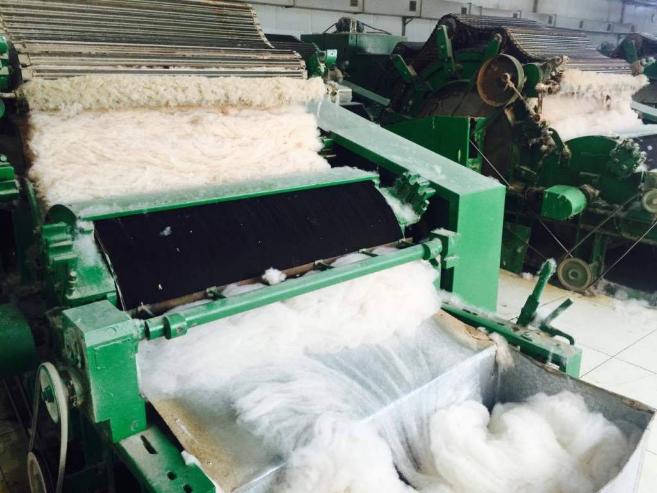
Concessional Loan Agreement Signed Under ‘White Gold’ National Movement www.montsame.mn
A signing ceremony was held on February 25 for a concessional loan financing agreement to be provided in 2026 under the “White Gold” national movement initiated by the President of Mongolia.
The ceremony was attended by Minister of Food, Agriculture and Light Industry Badamsuren Myagmarsuren, along with executives of nine banks, including Trade and Development Bank, State Bank, and Golomt Bank.
Speaking at the event, Minister Badamsuren expressed gratitude to the bank leaders and staff for supporting and cooperating in implementing sectoral policies and decisions. He emphasized that the results of national movements and programs demonstrate the importance of state support for the private sector through effective policies and concessional loans. The ministry is working on draft legislation aimed at creating a favorable legal environment to enhance the competitiveness of enterprises, including support measures such as preferential loans, land allocation, and tax incentives.
Under the approved 2026 state budget, MNT 350 billion is planned to be allocated within the framework of the “White Gold” movement. Last year, under the initiative, a total of MNT 509 billion in concessional loans for both working capital and investment financing was provided to 182 wool, cashmere, and leather processing factories and enterprises, including repeat borrowers.
As a result, 70 percent of raw cashmere was prepared by domestic producers, while exports of combed cashmere reached a historic high of 4,000 tonnes, valued at USD 330.6 million. In addition, spinning capacity increased by 400 tons and knitting capacity by 200,000 pieces.
...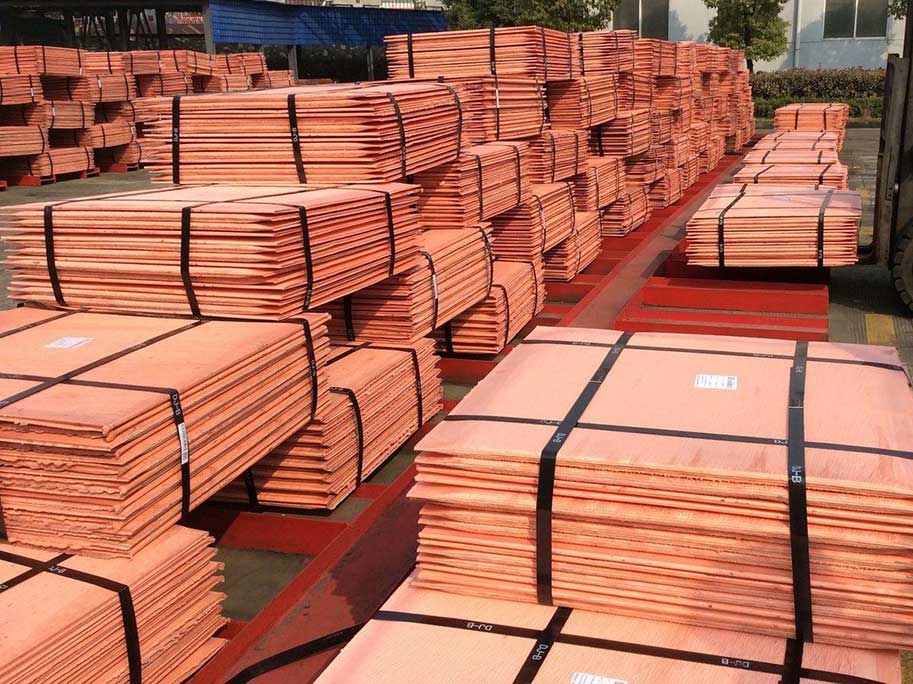
Mongolia Moves to Next Stage of Copper Smelter Selection Process www.montsame.mn
A working group established under the Prime Minister’s 2025 decree presented to the Cabinet a progress report on the project to build a copper concentrate smelting and processing plant within the framework of the Industrial and Technology Park based on Erdenet Mining Corporation.
Project information was delivered to 55 companies from more than 20 countries that are recognized as global leaders in copper and metallurgy. Of these, 13 companies from seven countries submitted proposals expressing interest in investing and cooperating in the project. Based on an evaluation of experience in implementing similar projects, technical and technological solutions, financial and economic capacity, and other criteria, four legal entities from two countries have been shortlisted, and preparation is underway for the next stage of the selection process, the Government’s Media and Public Relations Department reported.
The shortlisted participants include China’s NFC, Jiangxi Copper, and a consortium comprising Liantou New Energy Technology, China ENFI Engineering Corporation, and Shanxi Northern Copper Industry, as well as Switzerland’s Glencore International AG.
At its session on February 25, 2026, the Cabinet assigned the working group to approve the selection documents to be delivered to the shortlisted participants, to evaluate the submitted materials, and conduct the selection process. The Chief of the Cabinet Secretariat, Byambatsogt Sandag, was instructed to present the results to the Cabinet session in May this year.
...
Investment Opportunity in Mongolian Mining Introduced in London www.montsame.mn
The Ministry of Mining and Heavy Industry, in collaboration with the Mongolian National Mining Association, organized the “Mining Week & MinePro 2026” event on February 24, 2026, in London, to increase foreign investment and enhance strategic capital cohesion in the mining industry.
During the event, Minister of Mining and Heavy Industry Damdinnyam Gongor highlighted Mongolia’s mining sector policy, legal framework, investment climate reforms, and strategic trends. He emphasized the government’s policy of supporting sustainable development, transparency, international standards, and long-term investment in the sector.
Representatives of the MNMA, business entities, UK-based financial and international financial institutions, institutional investors, capital market professionals, and mining sector representatives participated and exchanged views. As part of the event, a panel discussion titled “From Strategy to Capital,” presentations on mining projects, and market discussions were held, along with B2B meetings with investors.
On the same day, Minister Damdinnyam met with Greg Guyett, First Vice President of the European Bank for Reconstruction and Development (EBRD), to discuss cooperation between Mongolia and the EBRD in the mining sector. During the meeting, the EBRD expressed its interest in cooperating on major industrial projects planned by the Government of Mongolia.
The parties also agreed to cooperate on conducting comprehensive baseline geological surveys across Mongolia and advancing digitalization in this area. Since 2006, the EBRD has provided more than EUR 2.5 billion in financing for 166 projects in Mongolia.
In addition, Minister Damdinnyam met with Chris McDonald, UK Minister for Industry at the Department for Business and Trade. The parties agreed to establish a joint working group between the two ministries to implement the Memorandum of Understanding on cooperation in the mining sector signed between Mongolia and the United Kingdom in 2024. They also agreed to explore opportunities for cooperation in financing joint baseline geological surveys in Mongolia, exchanging information, and supporting specialist training and capacity building.
...
Mongolia Seeks London Stock Exchange Listings for Mining Companies www.montsame.mn
Minister of Industry and Mineral Resources Damdinnyam Gongor met with Chief Executive Officer of the London Stock Exchange Julia Hoggett in London to discuss supporting Mongolian mining companies in listing on the exchange and attracting investment. The sides also exchanged views on enriching the operations of Mongolia’s mining products exchange with diversified financial instruments.
They further discussed utilizing stock exchange mechanisms as an effective option to channel benefits from mining projects to citizens through the national Wealth Fund, enhancing public knowledge and experience in capital markets, and introducing greater use of digital platforms. The Ministry of Industry and Mineral Resources reported that the parties agreed to study the London Stock Exchange’s experience and cooperate in these areas. The meeting is expected to facilitate the entry of Mongolian mining companies into global financial markets, open new sources of investment, and enhance public financial literacy.
Established in 1801, the London Stock Exchange is one of the world’s oldest and largest stock exchanges, hosting more than 1,000 listed companies from over 60 countries with a combined market capitalization of approximately USD 5.9 trillion. Its principal equity markets include the Main Market for large global companies and AIM (Alternative Investment Market) for smaller and high-growth firms, alongside markets for bonds, ETFs, and derivatives.
...- «
- 1
- 2
- 3
- 4
- 5
- 6
- 7
- 8
- 9
- 10
- 11
- 12
- 13
- 14
- 15
- 16
- 17
- 18
- 19
- 20
- 21
- 22
- 23
- 24
- 25
- 26
- 27
- 28
- 29
- 30
- 31
- 32
- 33
- 34
- 35
- 36
- 37
- 38
- 39
- 40
- 41
- 42
- 43
- 44
- 45
- 46
- 47
- 48
- 49
- 50
- 51
- 52
- 53
- 54
- 55
- 56
- 57
- 58
- 59
- 60
- 61
- 62
- 63
- 64
- 65
- 66
- 67
- 68
- 69
- 70
- 71
- 72
- 73
- 74
- 75
- 76
- 77
- 78
- 79
- 80
- 81
- 82
- 83
- 84
- 85
- 86
- 87
- 88
- 89
- 90
- 91
- 92
- 93
- 94
- 95
- 96
- 97
- 98
- 99
- 100
- 101
- 102
- 103
- 104
- 105
- 106
- 107
- 108
- 109
- 110
- 111
- 112
- 113
- 114
- 115
- 116
- 117
- 118
- 119
- 120
- 121
- 122
- 123
- 124
- 125
- 126
- 127
- 128
- 129
- 130
- 131
- 132
- 133
- 134
- 135
- 136
- 137
- 138
- 139
- 140
- 141
- 142
- 143
- 144
- 145
- 146
- 147
- 148
- 149
- 150
- 151
- 152
- 153
- 154
- 155
- 156
- 157
- 158
- 159
- 160
- 161
- 162
- 163
- 164
- 165
- 166
- 167
- 168
- 169
- 170
- 171
- 172
- 173
- 174
- 175
- 176
- 177
- 178
- 179
- 180
- 181
- 182
- 183
- 184
- 185
- 186
- 187
- 188
- 189
- 190
- 191
- 192
- 193
- 194
- 195
- 196
- 197
- 198
- 199
- 200
- 201
- 202
- 203
- 204
- 205
- 206
- 207
- 208
- 209
- 210
- 211
- 212
- 213
- 214
- 215
- 216
- 217
- 218
- 219
- 220
- 221
- 222
- 223
- 224
- 225
- 226
- 227
- 228
- 229
- 230
- 231
- 232
- 233
- 234
- 235
- 236
- 237
- 238
- 239
- 240
- 241
- 242
- 243
- 244
- 245
- 246
- 247
- 248
- 249
- 250
- 251
- 252
- 253
- 254
- 255
- 256
- 257
- 258
- 259
- 260
- 261
- 262
- 263
- 264
- 265
- 266
- 267
- 268
- 269
- 270
- 271
- 272
- 273
- 274
- 275
- 276
- 277
- 278
- 279
- 280
- 281
- 282
- 283
- 284
- 285
- 286
- 287
- 288
- 289
- 290
- 291
- 292
- 293
- 294
- 295
- 296
- 297
- 298
- 299
- 300
- 301
- 302
- 303
- 304
- 305
- 306
- 307
- 308
- 309
- 310
- 311
- 312
- 313
- 314
- 315
- 316
- 317
- 318
- 319
- 320
- 321
- 322
- 323
- 324
- 325
- 326
- 327
- 328
- 329
- 330
- 331
- 332
- 333
- 334
- 335
- 336
- 337
- 338
- 339
- 340
- 341
- 342
- 343
- 344
- 345
- 346
- 347
- 348
- 349
- 350
- 351
- 352
- 353
- 354
- 355
- 356
- 357
- 358
- 359
- 360
- 361
- 362
- 363
- 364
- 365
- 366
- 367
- 368
- 369
- 370
- 371
- 372
- 373
- 374
- 375
- 376
- 377
- 378
- 379
- 380
- 381
- 382
- 383
- 384
- 385
- 386
- 387
- 388
- 389
- 390
- 391
- 392
- 393
- 394
- 395
- 396
- 397
- 398
- 399
- 400
- 401
- 402
- 403
- 404
- 405
- 406
- 407
- 408
- 409
- 410
- 411
- 412
- 413
- 414
- 415
- 416
- 417
- 418
- 419
- 420
- 421
- 422
- 423
- 424
- 425
- 426
- 427
- 428
- 429
- 430
- 431
- 432
- 433
- 434
- 435
- 436
- 437
- 438
- 439
- 440
- 441
- 442
- 443
- 444
- 445
- 446
- 447
- 448
- 449
- 450
- 451
- 452
- 453
- 454
- 455
- 456
- 457
- 458
- 459
- 460
- 461
- 462
- 463
- 464
- 465
- 466
- 467
- 468
- 469
- 470
- 471
- 472
- 473
- 474
- 475
- 476
- 477
- 478
- 479
- 480
- 481
- 482
- 483
- 484
- 485
- 486
- 487
- 488
- 489
- 490
- 491
- 492
- 493
- 494
- 495
- 496
- 497
- 498
- 499
- 500
- 501
- 502
- 503
- 504
- 505
- 506
- 507
- 508
- 509
- 510
- 511
- 512
- 513
- 514
- 515
- 516
- 517
- 518
- 519
- 520
- 521
- 522
- 523
- 524
- 525
- 526
- 527
- 528
- 529
- 530
- 531
- 532
- 533
- 534
- 535
- 536
- 537
- 538
- 539
- 540
- 541
- 542
- 543
- 544
- 545
- 546
- 547
- 548
- 549
- 550
- 551
- 552
- 553
- 554
- 555
- 556
- 557
- 558
- 559
- 560
- 561
- 562
- 563
- 564
- 565
- 566
- 567
- 568
- 569
- 570
- 571
- 572
- 573
- 574
- 575
- 576
- 577
- 578
- 579
- 580
- 581
- 582
- 583
- 584
- 585
- 586
- 587
- 588
- 589
- 590
- 591
- 592
- 593
- 594
- 595
- 596
- 597
- 598
- 599
- 600
- 601
- 602
- 603
- 604
- 605
- 606
- 607
- 608
- 609
- 610
- 611
- 612
- 613
- 614
- 615
- 616
- 617
- 618
- 619
- 620
- 621
- 622
- 623
- 624
- 625
- 626
- 627
- 628
- 629
- 630
- 631
- 632
- 633
- 634
- 635
- 636
- 637
- 638
- 639
- 640
- 641
- 642
- 643
- 644
- 645
- 646
- 647
- 648
- 649
- 650
- 651
- 652
- 653
- 654
- 655
- 656
- 657
- 658
- 659
- 660
- 661
- 662
- 663
- 664
- 665
- 666
- 667
- 668
- 669
- 670
- 671
- 672
- 673
- 674
- 675
- 676
- 677
- 678
- 679
- 680
- 681
- 682
- 683
- 684
- 685
- 686
- 687
- 688
- 689
- 690
- 691
- 692
- 693
- 694
- 695
- 696
- 697
- 698
- 699
- 700
- 701
- 702
- 703
- 704
- 705
- 706
- 707
- 708
- 709
- 710
- 711
- 712
- 713
- 714
- 715
- 716
- 717
- 718
- 719
- 720
- 721
- 722
- 723
- 724
- 725
- 726
- 727
- 728
- 729
- 730
- 731
- 732
- 733
- 734
- 735
- 736
- 737
- 738
- 739
- 740
- 741
- 742
- 743
- 744
- 745
- 746
- 747
- 748
- 749
- 750
- 751
- 752
- 753
- 754
- 755
- 756
- 757
- 758
- 759
- 760
- 761
- 762
- 763
- 764
- 765
- 766
- 767
- 768
- 769
- 770
- 771
- 772
- 773
- 774
- 775
- 776
- 777
- 778
- 779
- 780
- 781
- 782
- 783
- 784
- 785
- 786
- 787
- 788
- 789
- 790
- 791
- 792
- 793
- 794
- 795
- 796
- 797
- 798
- 799
- 800
- 801
- 802
- 803
- 804
- 805
- 806
- 807
- 808
- 809
- 810
- 811
- 812
- 813
- 814
- 815
- 816
- 817
- 818
- 819
- 820
- 821
- 822
- 823
- 824
- 825
- 826
- 827
- 828
- 829
- 830
- 831
- 832
- 833
- 834
- 835
- 836
- 837
- 838
- 839
- 840
- 841
- 842
- 843
- 844
- 845
- 846
- 847
- 848
- 849
- 850
- 851
- 852
- 853
- 854
- 855
- 856
- 857
- 858
- 859
- 860
- 861
- 862
- 863
- 864
- 865
- 866
- 867
- 868
- 869
- 870
- 871
- 872
- 873
- 874
- 875
- 876
- 877
- 878
- 879
- 880
- 881
- 882
- 883
- 884
- 885
- 886
- 887
- 888
- 889
- 890
- 891
- 892
- 893
- 894
- 895
- 896
- 897
- 898
- 899
- 900
- 901
- 902
- 903
- 904
- 905
- 906
- 907
- 908
- 909
- 910
- 911
- 912
- 913
- 914
- 915
- 916
- 917
- 918
- 919
- 920
- 921
- 922
- 923
- 924
- 925
- 926
- 927
- 928
- 929
- 930
- 931
- 932
- 933
- 934
- 935
- 936
- 937
- 938
- 939
- 940
- 941
- 942
- 943
- 944
- 945
- 946
- 947
- 948
- 949
- 950
- 951
- 952
- 953
- 954
- 955
- 956
- 957
- 958
- 959
- 960
- 961
- 962
- 963
- 964
- 965
- 966
- 967
- 968
- 969
- 970
- 971
- 972
- 973
- 974
- 975
- 976
- 977
- 978
- 979
- 980
- 981
- 982
- 983
- 984
- 985
- 986
- 987
- 988
- 989
- 990
- 991
- 992
- 993
- 994
- 995
- 996
- 997
- 998
- 999
- 1000
- 1001
- 1002
- 1003
- 1004
- 1005
- 1006
- 1007
- 1008
- 1009
- 1010
- 1011
- 1012
- 1013
- 1014
- 1015
- 1016
- 1017
- 1018
- 1019
- 1020
- 1021
- 1022
- 1023
- 1024
- 1025
- 1026
- 1027
- 1028
- 1029
- 1030
- 1031
- 1032
- 1033
- 1034
- 1035
- 1036
- 1037
- 1038
- 1039
- 1040
- 1041
- 1042
- 1043
- 1044
- 1045
- 1046
- 1047
- 1048
- 1049
- 1050
- 1051
- 1052
- 1053
- 1054
- 1055
- 1056
- 1057
- 1058
- 1059
- 1060
- 1061
- 1062
- 1063
- 1064
- 1065
- 1066
- 1067
- 1068
- 1069
- 1070
- 1071
- 1072
- 1073
- 1074
- 1075
- 1076
- 1077
- 1078
- 1079
- 1080
- 1081
- 1082
- 1083
- 1084
- 1085
- 1086
- 1087
- 1088
- 1089
- 1090
- 1091
- 1092
- 1093
- 1094
- 1095
- 1096
- 1097
- 1098
- 1099
- 1100
- 1101
- 1102
- 1103
- 1104
- 1105
- 1106
- 1107
- 1108
- 1109
- 1110
- 1111
- 1112
- 1113
- 1114
- 1115
- 1116
- 1117
- 1118
- 1119
- 1120
- 1121
- 1122
- 1123
- 1124
- 1125
- 1126
- 1127
- 1128
- 1129
- 1130
- 1131
- 1132
- 1133
- 1134
- 1135
- 1136
- 1137
- 1138
- 1139
- 1140
- 1141
- 1142
- 1143
- 1144
- 1145
- 1146
- 1147
- 1148
- 1149
- 1150
- 1151
- 1152
- 1153
- 1154
- 1155
- 1156
- 1157
- 1158
- 1159
- 1160
- 1161
- 1162
- 1163
- 1164
- 1165
- 1166
- 1167
- 1168
- 1169
- 1170
- 1171
- 1172
- 1173
- 1174
- 1175
- 1176
- 1177
- 1178
- 1179
- 1180
- 1181
- 1182
- 1183
- 1184
- 1185
- 1186
- 1187
- 1188
- 1189
- 1190
- 1191
- 1192
- 1193
- 1194
- 1195
- 1196
- 1197
- 1198
- 1199
- 1200
- 1201
- 1202
- 1203
- 1204
- 1205
- 1206
- 1207
- 1208
- 1209
- 1210
- 1211
- 1212
- 1213
- 1214
- 1215
- 1216
- 1217
- 1218
- 1219
- 1220
- 1221
- 1222
- 1223
- 1224
- 1225
- 1226
- 1227
- 1228
- 1229
- 1230
- 1231
- 1232
- 1233
- 1234
- 1235
- 1236
- 1237
- 1238
- 1239
- 1240
- 1241
- 1242
- 1243
- 1244
- 1245
- 1246
- 1247
- 1248
- 1249
- 1250
- 1251
- 1252
- 1253
- 1254
- 1255
- 1256
- 1257
- 1258
- 1259
- 1260
- 1261
- 1262
- 1263
- 1264
- 1265
- 1266
- 1267
- 1268
- 1269
- 1270
- 1271
- 1272
- 1273
- 1274
- 1275
- 1276
- 1277
- 1278
- 1279
- 1280
- 1281
- 1282
- 1283
- 1284
- 1285
- 1286
- 1287
- 1288
- 1289
- 1290
- 1291
- 1292
- 1293
- 1294
- 1295
- 1296
- 1297
- 1298
- 1299
- 1300
- 1301
- 1302
- 1303
- 1304
- 1305
- 1306
- 1307
- 1308
- 1309
- 1310
- 1311
- 1312
- 1313
- 1314
- 1315
- 1316
- 1317
- 1318
- 1319
- 1320
- 1321
- 1322
- 1323
- 1324
- 1325
- 1326
- 1327
- 1328
- 1329
- 1330
- 1331
- 1332
- 1333
- 1334
- 1335
- 1336
- 1337
- 1338
- 1339
- 1340
- 1341
- 1342
- 1343
- 1344
- 1345
- 1346
- 1347
- 1348
- 1349
- 1350
- 1351
- 1352
- 1353
- 1354
- 1355
- 1356
- 1357
- 1358
- 1359
- 1360
- 1361
- 1362
- 1363
- 1364
- 1365
- 1366
- 1367
- 1368
- 1369
- 1370
- 1371
- 1372
- 1373
- 1374
- 1375
- 1376
- 1377
- 1378
- 1379
- 1380
- 1381
- 1382
- 1383
- 1384
- 1385
- 1386
- 1387
- 1388
- 1389
- 1390
- 1391
- 1392
- 1393
- 1394
- 1395
- 1396
- 1397
- 1398
- 1399
- 1400
- 1401
- 1402
- 1403
- 1404
- 1405
- 1406
- 1407
- 1408
- 1409
- 1410
- 1411
- 1412
- 1413
- 1414
- 1415
- 1416
- 1417
- 1418
- 1419
- 1420
- 1421
- 1422
- 1423
- 1424
- 1425
- 1426
- 1427
- 1428
- 1429
- 1430
- 1431
- 1432
- 1433
- 1434
- 1435
- 1436
- 1437
- 1438
- 1439
- 1440
- 1441
- 1442
- 1443
- 1444
- 1445
- 1446
- 1447
- 1448
- 1449
- 1450
- 1451
- 1452
- 1453
- 1454
- 1455
- 1456
- 1457
- 1458
- 1459
- 1460
- 1461
- 1462
- 1463
- 1464
- 1465
- 1466
- 1467
- 1468
- 1469
- 1470
- 1471
- 1472
- 1473
- 1474
- 1475
- 1476
- 1477
- 1478
- 1479
- 1480
- 1481
- 1482
- 1483
- 1484
- 1485
- 1486
- 1487
- 1488
- 1489
- 1490
- 1491
- 1492
- 1493
- 1494
- 1495
- 1496
- 1497
- 1498
- 1499
- 1500
- 1501
- 1502
- 1503
- 1504
- 1505
- 1506
- 1507
- 1508
- 1509
- 1510
- 1511
- 1512
- 1513
- 1514
- 1515
- 1516
- 1517
- 1518
- 1519
- 1520
- 1521
- 1522
- 1523
- 1524
- 1525
- 1526
- 1527
- 1528
- 1529
- 1530
- 1531
- 1532
- 1533
- 1534
- 1535
- 1536
- 1537
- 1538
- 1539
- 1540
- 1541
- 1542
- 1543
- 1544
- 1545
- 1546
- 1547
- 1548
- 1549
- 1550
- 1551
- 1552
- 1553
- 1554
- 1555
- 1556
- 1557
- 1558
- 1559
- 1560
- 1561
- 1562
- 1563
- 1564
- 1565
- 1566
- 1567
- 1568
- 1569
- 1570
- 1571
- 1572
- 1573
- 1574
- 1575
- 1576
- 1577
- 1578
- 1579
- 1580
- 1581
- 1582
- 1583
- 1584
- 1585
- 1586
- 1587
- 1588
- 1589
- 1590
- 1591
- 1592
- 1593
- 1594
- 1595
- 1596
- 1597
- 1598
- 1599
- 1600
- 1601
- 1602
- 1603
- 1604
- 1605
- 1606
- 1607
- 1608
- 1609
- 1610
- 1611
- 1612
- 1613
- 1614
- 1615
- 1616
- 1617
- 1618
- 1619
- 1620
- 1621
- 1622
- 1623
- 1624
- 1625
- 1626
- 1627
- 1628
- 1629
- 1630
- 1631
- 1632
- 1633
- 1634
- 1635
- 1636
- 1637
- 1638
- 1639
- 1640
- 1641
- 1642
- 1643
- 1644
- 1645
- 1646
- 1647
- 1648
- 1649
- 1650
- 1651
- 1652
- 1653
- 1654
- 1655
- 1656
- 1657
- 1658
- 1659
- 1660
- 1661
- 1662
- 1663
- 1664
- 1665
- 1666
- 1667
- 1668
- 1669
- 1670
- 1671
- 1672
- 1673
- 1674
- 1675
- 1676
- 1677
- 1678
- 1679
- 1680
- 1681
- 1682
- 1683
- 1684
- 1685
- 1686
- 1687
- 1688
- 1689
- 1690
- 1691
- 1692
- 1693
- 1694
- 1695
- 1696
- 1697
- 1698
- 1699
- 1700
- 1701
- 1702
- 1703
- 1704
- 1705
- 1706
- 1707
- 1708
- 1709
- 1710
- 1711
- 1712
- 1713
- 1714
- 1715
- 1716
- 1717
- 1718
- 1719
- 1720
- 1721
- 1722
- 1723
- 1724
- 1725
- 1726
- 1727
- »






